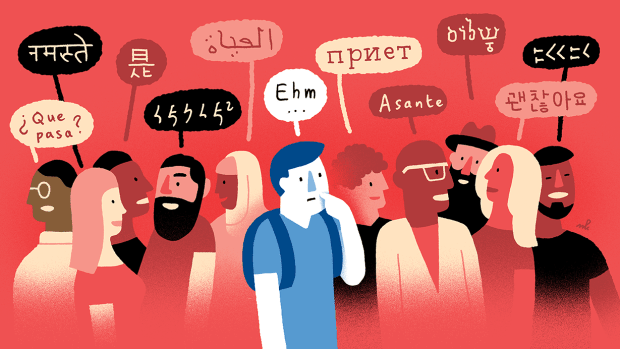
Hard cuts and fewer foreign students: “It could lead to a wave of layoffs”
The opposition is very concerned about the future of higher education, according to questions about a bill aimed at controlling internationalization. But even the governing party NSC still sees some obstacles.
Some parties felt it took far too long, but just before the end of his term, outgoing minister Robbert Dijkgraaf sent the Internationalization in Balance bill to the House of Representatives. It deals with language policy and the recruitment of foreign students.
But it’s still not a done deal. The House of Representatives has many critical questions, according to the first round of a written consultation. Dijkgraaf’s successor Eppo Bruins may give the answers at a later date.
The PVV
The new governing parties seem fairly satisfied. The PVV views it “with some approval,” the VVD endorses the proposed measures “by and large,” and the BBB is happy that foreign students will soon also be required to take Dutch lessons.
Indeed, the PVV would like to impose sanctions on universities and colleges “that refuse to follow the spirit of the law,” the written consultation states, “but instead abuse the letter.” In fact, the PVV considers this the “most important issue.”
But if the bill specifically seeks a balance, what then is the “spirit of the law”? Is fewer foreigners the only thing that matters? Or is it mainly about mutual consultation between institutions and taking into account local conditions? Before threatening sanctions, they should devote some thought to that.
The NSC
The position of the NSC is striking. Now that the point has been made, they seem to be somewhat alarmed by the possible consequences. Fewer international students, for example, means less funding. “Will institutions be disproportionately affected by this?” is one of the questions asked by Pieter Omtzigt’s party. “If so, what opportunities does the government see to make adjustments in this or allow exceptions?”
The NSC lashed out fairly harshly at foreign students and migrant workers in the run-up to the elections, so the party’s concern that international students and teachers may feel “that they are no longer welcome in the Netherlands” is somewhat unexpected. The NSC would like to know: “How can the government help put these sentiments in context, especially given the great importance of a certain amount of internationalization and number of international students to the economy in the future?”
A range of implications
At the Green Left-PvdA, NSC’s comments seem to have raised eyebrows. The party takes a strong stance and warns of a whole range of consequences of the coming policy. “Institutions will feel hounded by the intended cuts and it could lead to a substantial wave of layoffs among staff,” the party believes.
They also have a list of additional criticisms. The new cabinet, according to the GroenLinks-PvdA, “Impoverishes science; reduces space for research; negatively affects high-quality (technological) employment; negatively affects business; damages the competitiveness of the Netherlands; increases the application pressure on researchers; decreases money for social security at colleges and universities; reduces innovations in technical, social and medical fields; has negative geopolitical consequences for strategic autonomy and negative consequences for digital sovereignty; provides less money for knowledge security; reduces competitive strength in the region; has negative consequences for regional SMEs; and reduces knowledge about social issues.”
Own Minister
D66 is no doubt in a quandary. The party does not want to attack the bill of its own minister, Robbert Dijkgraaf, but is critical of the new cabinet. Party members therefore write that they “appreciate the government’s efforts to preserve the benefits of internationalization while reducing the pressure on the Dutch education system.”
But why is the new cabinet budgeting a cut of exactly €293 million for the influx of international students, the D66 wants to know. What happens if this cut is not feasible by means of this bill? Other parties are also asking questions about this.
Reputational damage
Other parties also have many questions, for example, about the reputational damage abroad if the Netherlands admits fewer foreign students (Volt), and also about the bureaucratic burden if English-language programs are required to justify their choice of language (SGP).
The bill is not specifically designed to address problems in the housing market. It is, after all, about higher education, even though those problems are part of the discussion. How is this related, asks the Christian Union.
Some parties would also like to know why vocational education is subject to the same rules as academic education, even though there is much less internationalization at most vocational colleges. Why bother HBO with extra supervision and rules when there is hardly any problem? The NSC, among others, wonders how the government will take such differences into account.
Numerus fixus
Additionally, the numerus fixus is not a trivial issue. The bill allows programs to set a numerus fixus for the foreign language track. The idea is that Dutch students will retain access through the Dutch-language track, while the influx of foreign students can be limited.
But then more study programs will have such a numerus fixus. “How does the government think this scarcity of available places should be handled?” asks the NSC. “What possibilities are there to select or draw lots for students, and what preferences does the government have considering the known effects of selection on equity and performance pressure?”
This issue will also be questioned by the opposition because the outline agreement that the NSC signed states, among other things, that “the binding study advice will not be relaxed and selective admissions will remain possible without prejudice.” So the answer will be: The same as it is now.
Pace
It is now up to the next cabinet member, Eppo Bruins, to answer these questions. He has said he wants to expedite internationalization, so chances are the answers will indeed come soon.
But will it be fast enough? The D66 also questions the time frame. The government wants the law to take effect on January 1st, 2025. Will that happen “now that the House of Representatives will not consider this law until September 2024 at the earliest”?

